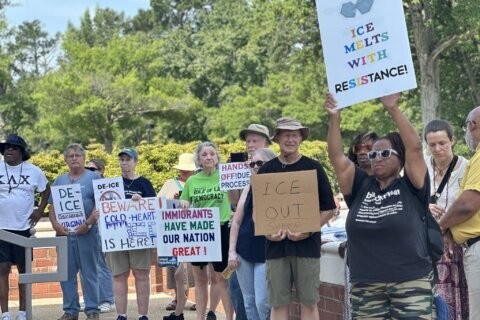Among Northern Virginia’s sprawling, affluent neighborhoods, there are 15 high-poverty communities that took decades to create using hidden discriminatory public policies.
That is the finding of a new report released this month called “Deeply Rooted: History Lessons for Equity in Northern Virginia.”
“Why is it that the people who live in this area are struggling as much as they are?” asked Virginia Commonwealth University Professor Dr. Steven Woolf, who authored the study.
He said that’s the question his team of researchers set out to answer when they started their work.
They looked at the Northern Virginia region’s 400-year history and traced their findings to the damaging effect of social policies and practices still being felt today.
“From the get-go, this region has an origin of people of color being marginalized and their white owners gathering wealth and power,” Woolf said.
The study began as a research project on health care disparities across the region.
But Woolf, who is a physician, said it quickly morphed to include housing, education, employment and civil rights.
The team of researchers began referring to Northern Virginia’s low-income communities as “islands of disadvantage,” areas that do not experience the same wealth and health as neighboring communities.
“That story is so typical. Vienna, Clifton, Virginia. Other areas that have McMansions, there’s a fascinating story to tell,” he said. “There’s a narrative that problem neighborhoods are the way they are because of people who live there. That’s just factually incorrect.”
Researchers discovered hidden discriminatory public policies blocked access to quality education, high-earning jobs and stripped many Black residents of their land through eminent domain.
“There are landmarks that Americans know across the country, like the Pentagon and Arlington National Cemetery, that are sitting on these former African American communities,” Woolf said.
His team discovered documents revealing that during World War II, the U.S. government decided to build the Pentagon and many families were moved from land they owned into trailer camps.
Woolf showed how resilient Black residents were as they rallied to get their kids educated or how they demonstrated for civil rights and other measures as well.
The next step is getting the report to lawmakers who can craft new measures to fix the issues, Woolf said.
“We’re going to be making efforts around this for policymakers in the state to try to address these same domains,” adding that “access to education, affordable housing, the wealth divide flow from this history but are very acute issues that we’re dealing with nowadays.”
Woolf said he wants to get his report into the hands of teens and young adults too.
“That’s the generation I feel so optimistic about,” he said. “They are rejecting a lot of biases older folks grew up with.”








